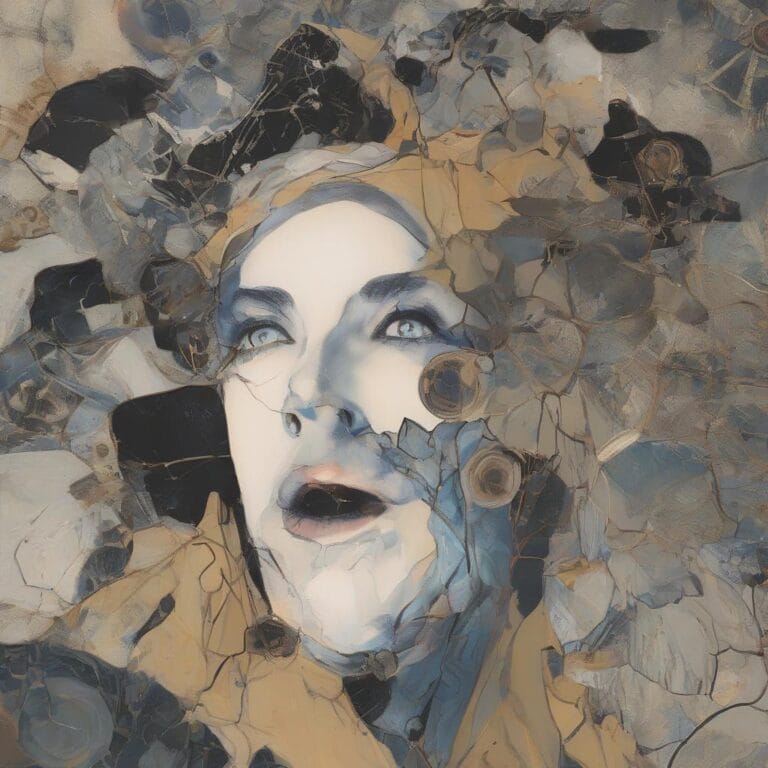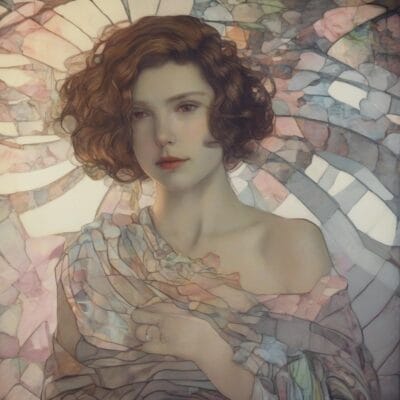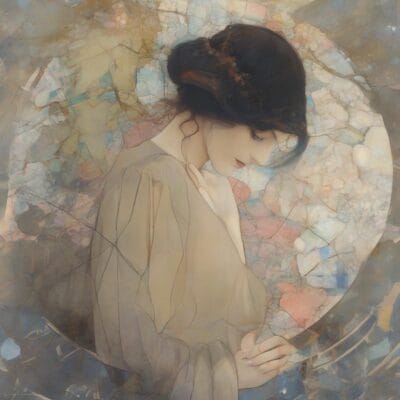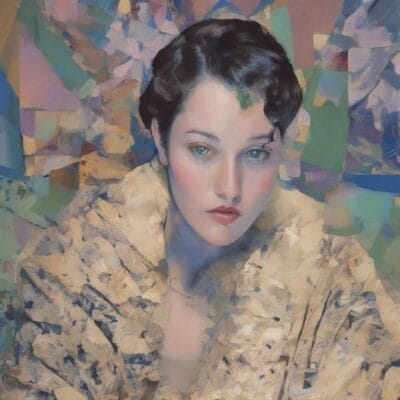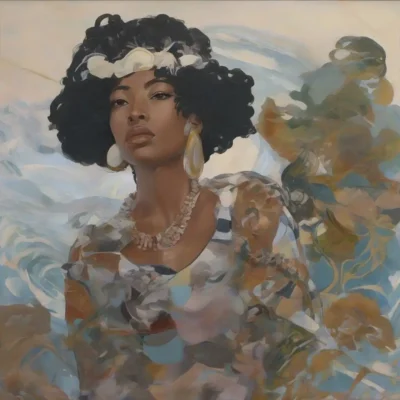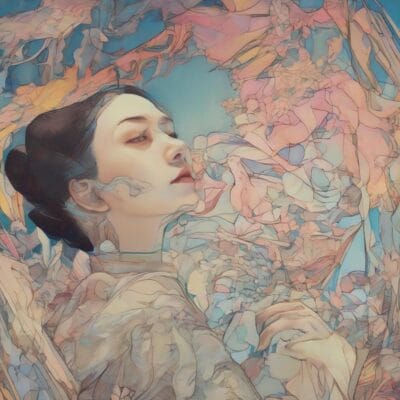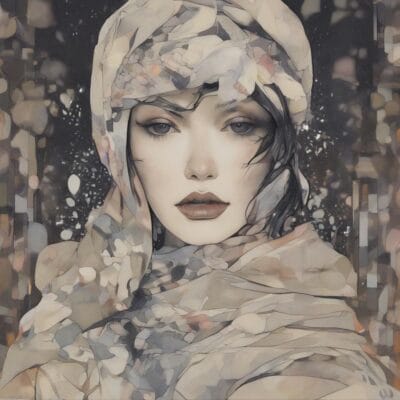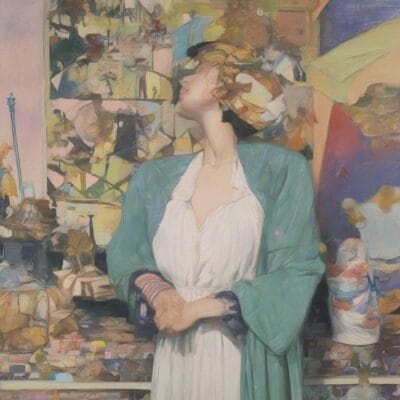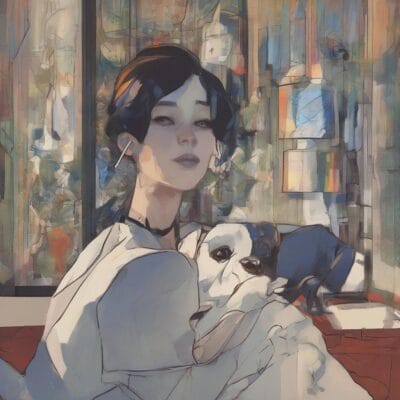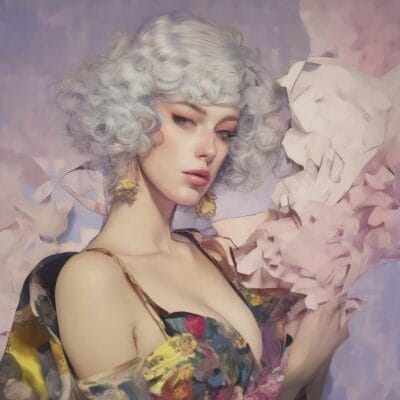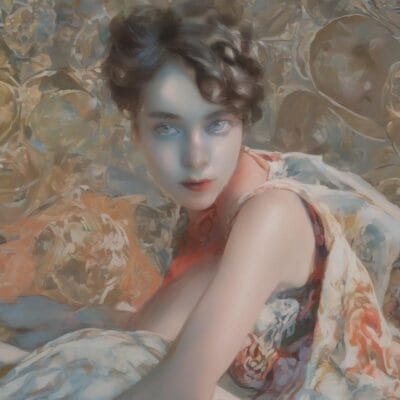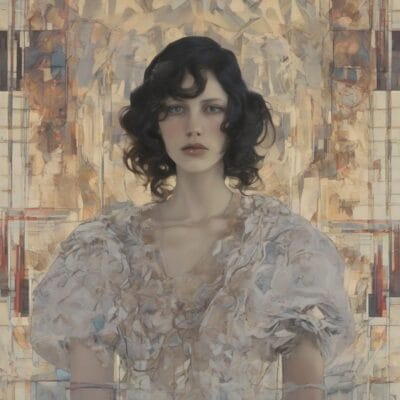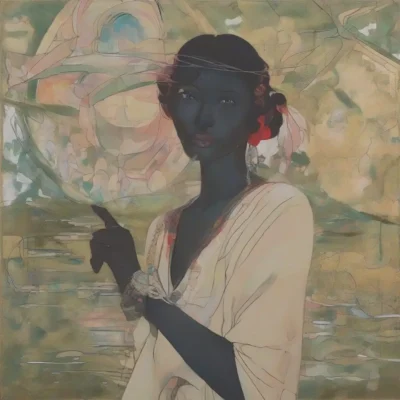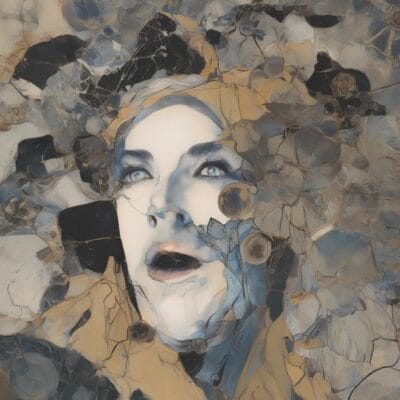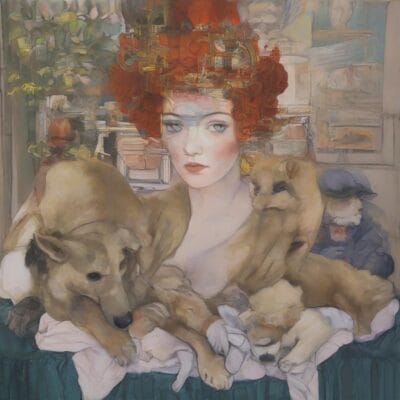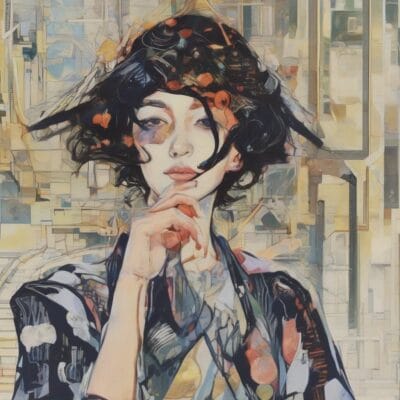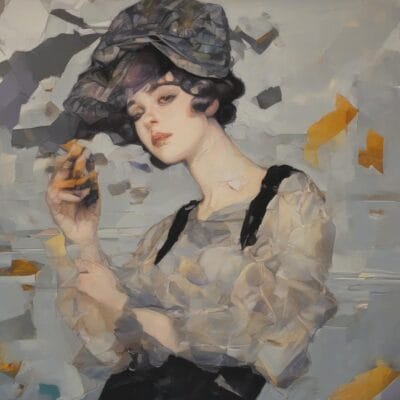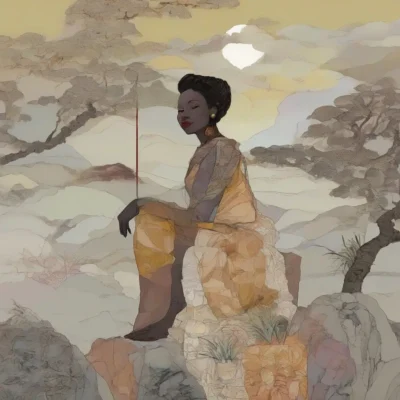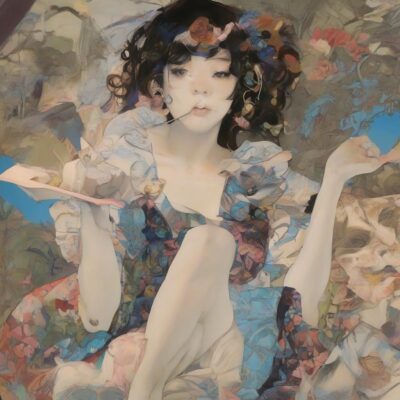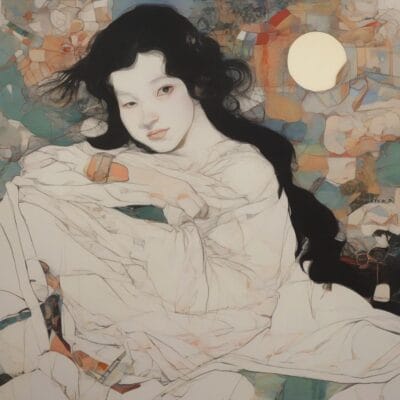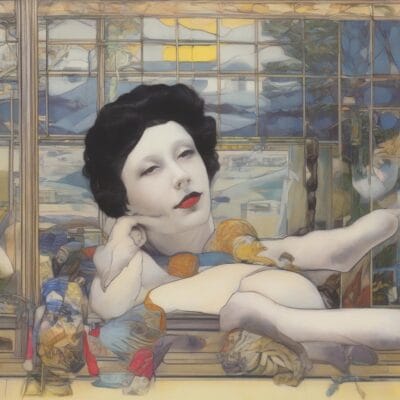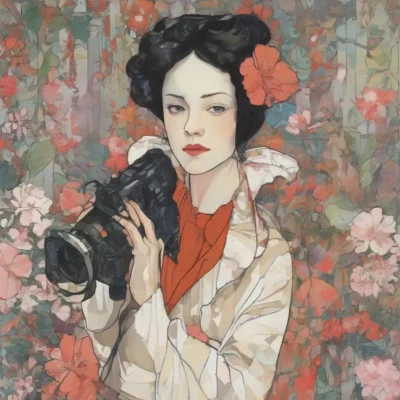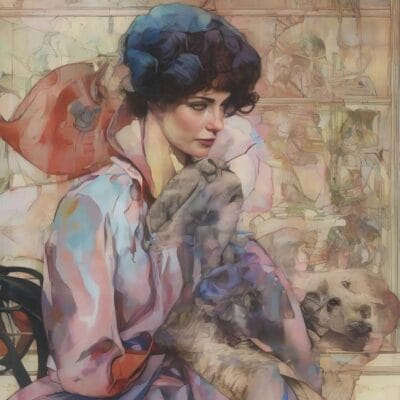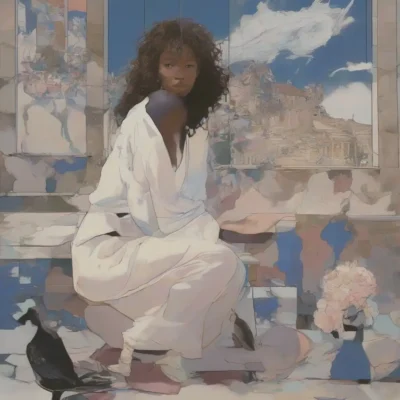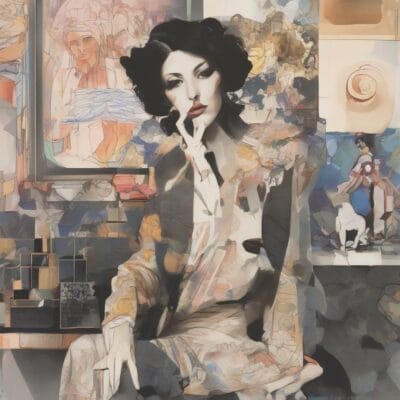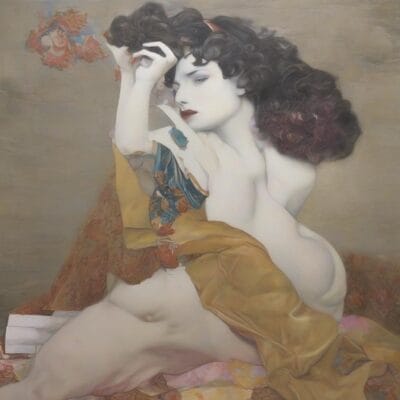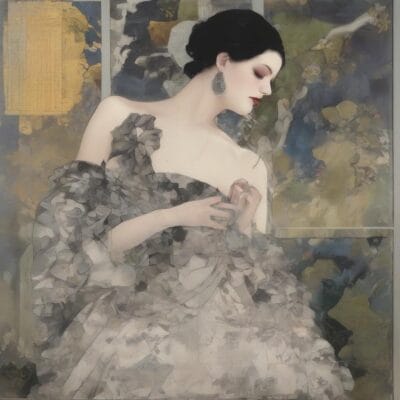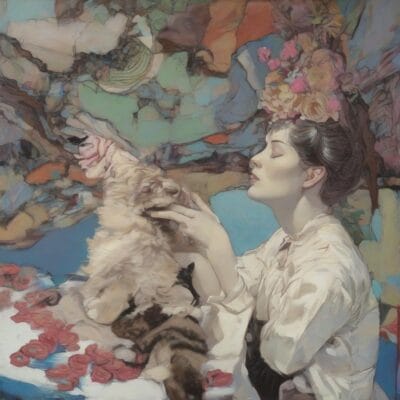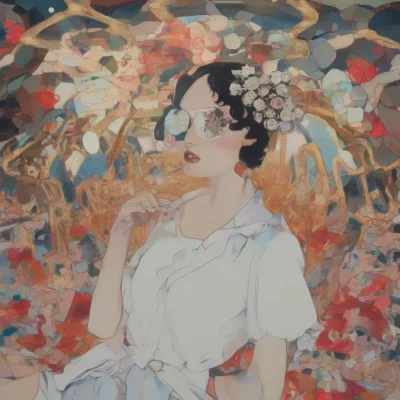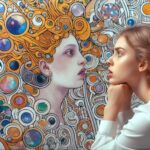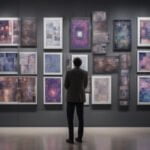About This Gallery
This gallery deals with the unavoidable stereotypes of femininity that one encounters using some current generative art tools ca. 2024.
Being trained on a society's art, there are two possibilities for generative visual art software: it can hold an unflinching mirror up to that society, including reiterating its existing biases; or its creators can seek to consciously tilt the output to favor what they deem to be better choices, which opens the whole project up to accusations, and let's face it, perhaps the reality, of introducing other biases. The unfortunate truth is that at the time, people never thought to question making art that almost exclusively reinforced certain notions (of femininity, or anything else). They did not consider themselves to be biased. So too, despite the most admirable intentions, it's honestly a valid question whether or not current attempts to right historical wrongs are undoing bias, or simply introducing different bias, simply because it's hard to see when you're in it. Only history will be able to say for sure. I know which side of the debate I fall on, but it doesn't matter—only that the question is valid.
I posted some earlier thoughts on this in About Sexism In The AI Images On This Site, most especially with the frequent nude women SDXL continues to frustrate me by generating way too often—mental note, who'd have ever thought I'd complain about seeing too many pictures of nude women?—with the ultimate result that I think I'm just going to deal with it. Frankly, the artistic styles I like happen to include a lot of images of a certain stereotype of women. That's not the reason I like them, but that happens to be what the mores and beliefs were at the time the styles originated, so that's what got over-represented. And AI generative art is more strongly backwards-looking than most art, because AI doesn't dream—it doesn't think, "I wonder if there's a way I can put two and two together and get five". It doesn't ask questions. It doesn't envision the impossible or contemplate the unknown. It just looks at the past history as recorded in its training corpus, and says, "Ok, that's the guidelines".
But I think about it in other ways. In this particular gallery, I've tried to underscore output contrary to that: faces of women who have never existed, conforming to demure aesthetic standards of femininity of previous eras, but selected for this gallery for showing what reads to me like a quiet strength, dignity or confidence that belies the modern view of those standards. The invented faces in these images look soft, and my feminist friends will probably note some of the same old stereotypical element of what they call the "male gaze" here—but, while they may be reflective, or calm, or impassive, they are not submissive.
For now, with AI art, that may be the best I can do. I mean, short of avoiding the visual subject of females altogether.
Interestingly, the prompts for these images contained no references to gender at all. The fact that most of the images were of female figures is, itself, a product of the AI's inherent training biases. This final gallery was selected from many dozens of generated images. None of them contained a male subject.
